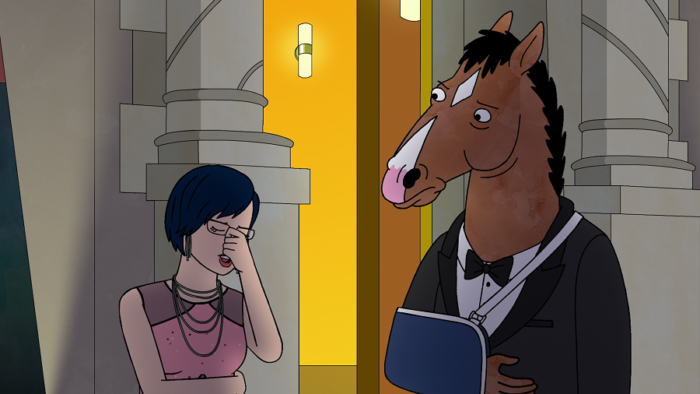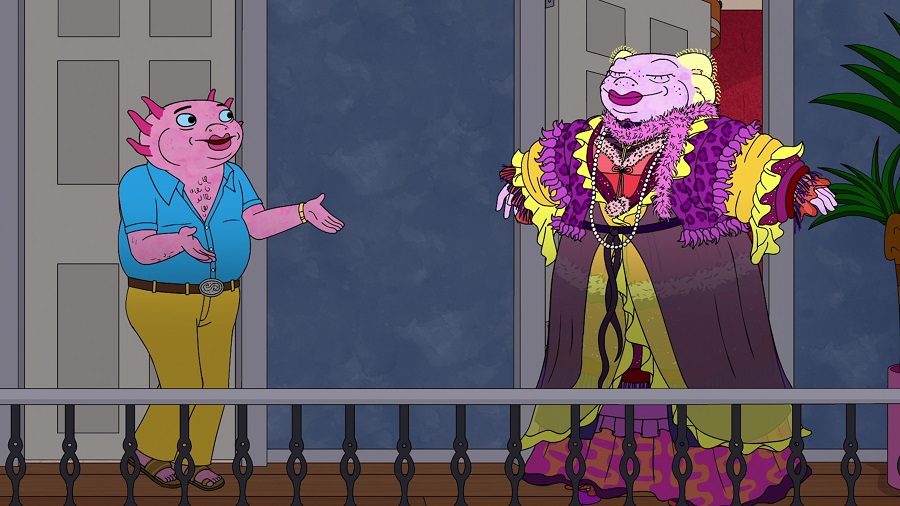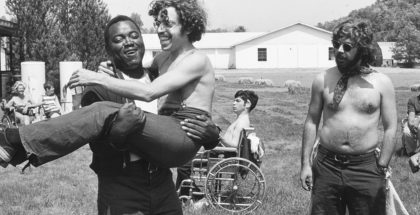Netflix UK TV review: BoJack Horseman Season 5 (spoilers)
Review Overview
Todd Chavez subplots
8Current affairs commentary
9Extension of the Bojack Story
7Nathanael Smith | On 24, Sep 2018
The first four seasons of Bojack Horseman have been a real journey for its loyal viewers – we’ve come a long way since Season 1, when it was just a goofy comedy about a bad horse/bman. Since those early days, the show hinted at a redemption arc for Bojack. He’s a bad guy, but is he on the road to being a better person? It kept teasing this resolution, making Bojack about as vulnerable and sympathetic as it dared, asking its viewers whether they could actually like him. Then, without fail, it would reinforce, painfully, that Bojack was a terrible horse/man: he makes out with his friend’s 17-year-old daughter; he kills Sarah-Lynn by encouraging her to go on a bender, after days of sobriety. The theme that emerged is that however much you want to like Bojack, however much you want a redemption arc, Bojack is never going to get better. He’s never going to change.
The problem is, once you’ve established that, where do you go? What journey can you take Bojack Horseman on, after you’ve made it quite clear that he is intransigent, immovable? A couple of episodes into Season 5 and you worry that the show is now caught in a thematic loop with nowhere to go. Bojack is still arrogant, conflicted and succeeding in spite of it all. It’s worrying – maybe one of the sharpest shows in streaming doesn’t have anything left to say.
Creator Raphael Bob-Waksberg and his writing team address this conundrum in a number of different ways, with varying levels of success. For instance, they’re a lot more playful with form in this season, even for a show that has regularly messed with what you can do in a 25-minute episode. Where, in Season 3, they had a silent episode, here they have an episode that is entirely a monologue (it’s good, if a little gimmicky, and ends on a killer joke). Where, in Season 1, they played with time on a drug-bender, here, they use Bojack’s addictions to mix reality and performance in one of the season’s most powerful moments. There’s also an episode that takes place in four different years on the same night and one that’s a story told by a therapist in which Todd is a giant hand. A lot of it feels like it’s straining to be zany, but it’s at least consistently surprising. At its very best, these formal shenanigans lead to fresh takes on the supporting characters.
Another way the team push the show forward instead of leaving it in a rut is by using its metatextuality to make Bojack as current as possible. It pays more than lip service to #MeToo – a good thing, for a show about an abuser in Hollywoo. It tackles the movement head on, as it asks: what does it look like for someone as wretched Bojack to live and work in this climate? Turns out it’s a perfect avenue towards his own rehabilitation as a “feminist”. Philbert, the show-within-a-show, takes aim at prestige TV and the cliché of a tortured male genius, while repeatedly reinforcing that Bojack is definitely not that.
Bojack is as surreal a show as it is progressive, so while it has a subplot dealing with Todd’s asexuality, it also climaxes in humanoid axolotls wrestling in antique lube. This is a show where a boss gets toppled from his company for sexual abuse, but the boss just happens to be a cobbled together sex robot called Henry Fondles. It holds both of these things – scalding hot takes and ludicrous storytelling – in perfect tension, allowing space for both. In fact, they end up in a symbiotic relationship, with the surreal elements reflected in the stupidity of the very realistic Hollywoo narratives.
Then, there’s the other major creative decision that the writing team make to progress Bojack as a show, while resolutely not doing so for Bojack the character: they double down on how terrible he is. At the premiere of Philbert, he argues with Diane that he is the victim, because he’s the one who has to live with what he’s done. It’s a plausible, sickening thing to hear Bojack say, one that Diane firmly and mercifully (for the audience) rebuts. It doesn’t matter how haunted he is, it doesn’t matter if everyone is broken; Bojack needs to own what he has done and realise the horror of his actions. The next episode culminates with him violently attacking his co-star on set, with the people around him excusing him and trying to keep his career on track. It’s the worst that Bojack Horseman the character has been, but it’s the best that Bojack Horseman the show has been.
Season 5 ends with Bojack Horseman checking into rehab and we’re left with the question, once more, of whether he can change. And as the previous episode reminds you of one song from Cabaret, the final moments leaves you remembering another: maybe this time.
BoJack Horseman: Season 5 is available on Netflix UK, as part of an £9.99 monthly subscription.






















